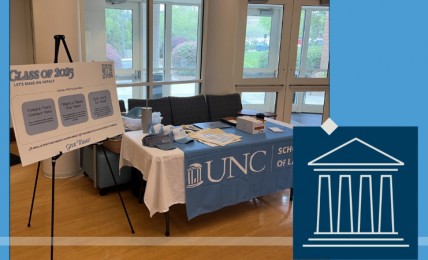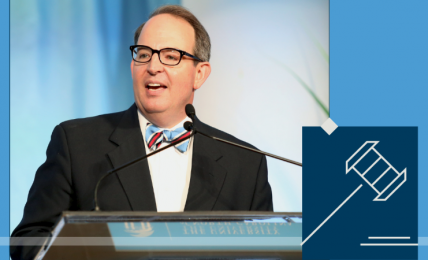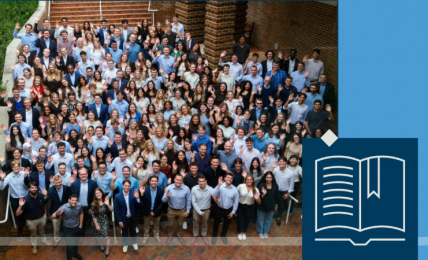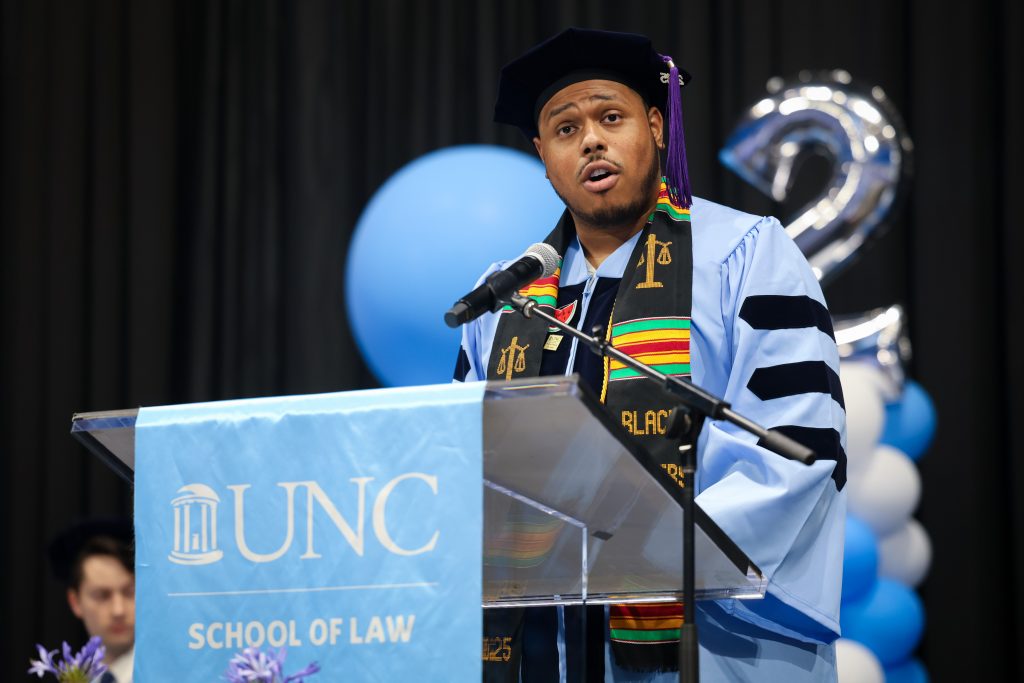
The caps may look the same, and the diplomas may read like those from years past, but make no mistake: UNC School of Law’s class of 2025 leaves behind a legacy of transformation that was on full display at their commencement ceremony.
In an unprecedented move that speaks volumes about their approach to the legal profession, this year’s graduates became the first in school history to incorporate a doctoral hooding into the traditional commencement exercises, a seemingly small change representing this class’s broader philosophy.
“What I admire most about this class is that none of you ever just accepted the world for what it is,” said Student Bar Association President Josh Jacobs ’25 in his address. “Look at today’s ceremony. The class of 2025 is the first Carolina Law class to incorporate a hooding ceremony into commencement. That change, like so many others, reflects the mindset of this class, a belief that tradition should evolve to meet the needs of the people, not force people to conform to tradition.”
But reimagining commencement is just the capstone to three years of community impact and academic excellence that defined this transformative class. Even as these students navigated the rigors of legal education, they contributed an astonishing 8,429 hours of pro bono service. Over half the class devoted at least 25 hours to representing clients who couldn’t afford legal assistance, with dozens surpassing 100 hours of service.
Their commitment to excellence extended beyond service into scholarship and leadership. Samuel Lahne received the Bane Outstanding Writing Award for his paper “A Prosecutor Image Mismatch,” while Drew Alexander earned the Coates Rule of Law Essay Award for “When Courts Confront AI: Assessing the Need for AI-Specific Rules.” Both papers tackle the kind of cutting-edge legal questions this class has consistently engaged with throughout their time at Carolina Law.
The same spirit of innovation that drove these academic achievements also shaped leadership within the Carolina Law community. Juliana Whittington, recipient of the Winston Crisp Award for Student Leadership, transformed the Anti-Death Penalty Project from a small organization with just two events into a thriving and impactful student group. Thad Beaver’s clinical work earned him the Clinical Legal Education Association Outstanding Student Award, in recognition of his development of attorney-client relationships and contributions to the clinical community.
Third-year law student class president Rob Jarrell connected this ethic of service to the class’s final gift, raising over $2,500 for public interest summer grants. “Public interest work is essential to the functioning of our legal system and to ensuring that all members of our society, regardless of income, have access to justice,” Jarrell stressed during the gift presentation.
The ceremony, which honored 184 Juris Doctor recipients, resonated with this tension between tradition and transformation. Dean Martin H. Brinkley ’92 situated the graduates within the School’s 180-year legacy, while Law Alumni Association President Brian Meacham ’03 challenged them to envision unprecedented futures.
“Your Carolina Law degree can take you places you probably haven’t even imagined,” said Meacham, pointing to Carolina Law alumni who have become partners in some of the world’s largest law firms, leaders in Fortune 500 companies and public servants who’ve worked in the highest levels of government, judiciary and the nonprofit world.
Professors Osamudia James, Eisha Jain, Bill Marshall and Kathleen Thomas performed the hooding honors. Professor Jain also received the Frederick B. McCall Award for Teaching Excellence, as voted by the graduating class. This was a fitting recognition given Jain’s role on the writing awards committee that honored several members of this exceptional class.
As the ceremony concluded, Jacobs’ parting words to his classmates seemed less like a farewell and more like a mission statement for their careers ahead:
“Continue doing what you already have been. Own the narrative. You do not need permission to help others. You can be ambitious. You can take up space and make room for those who come after you.”
For a class that refused to accept that things must be done a certain way simply because “that’s how they’ve always been done,” these weren’t just comforting platitudes but a blueprint for how they intend to approach the legal profession – with innovation, inclusivity and a commitment to justice that honors tradition while confidently reshaping it. From their hours in the clinic to their essays on artificial intelligence, from transforming student organizations to serving clients who couldn’t afford representation, this class has already shown they’re ready to do more than just practice law, they’re here to change it.
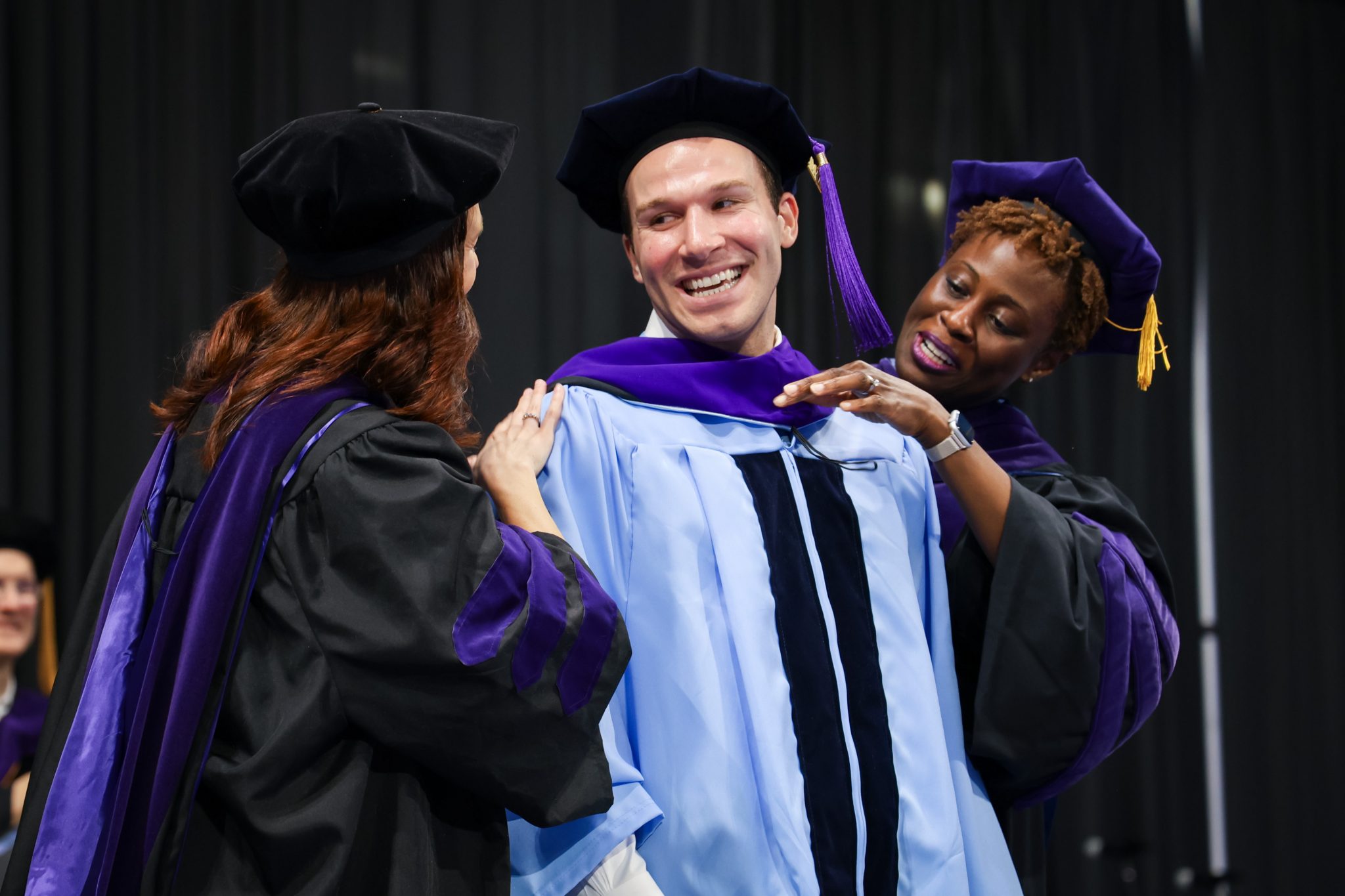
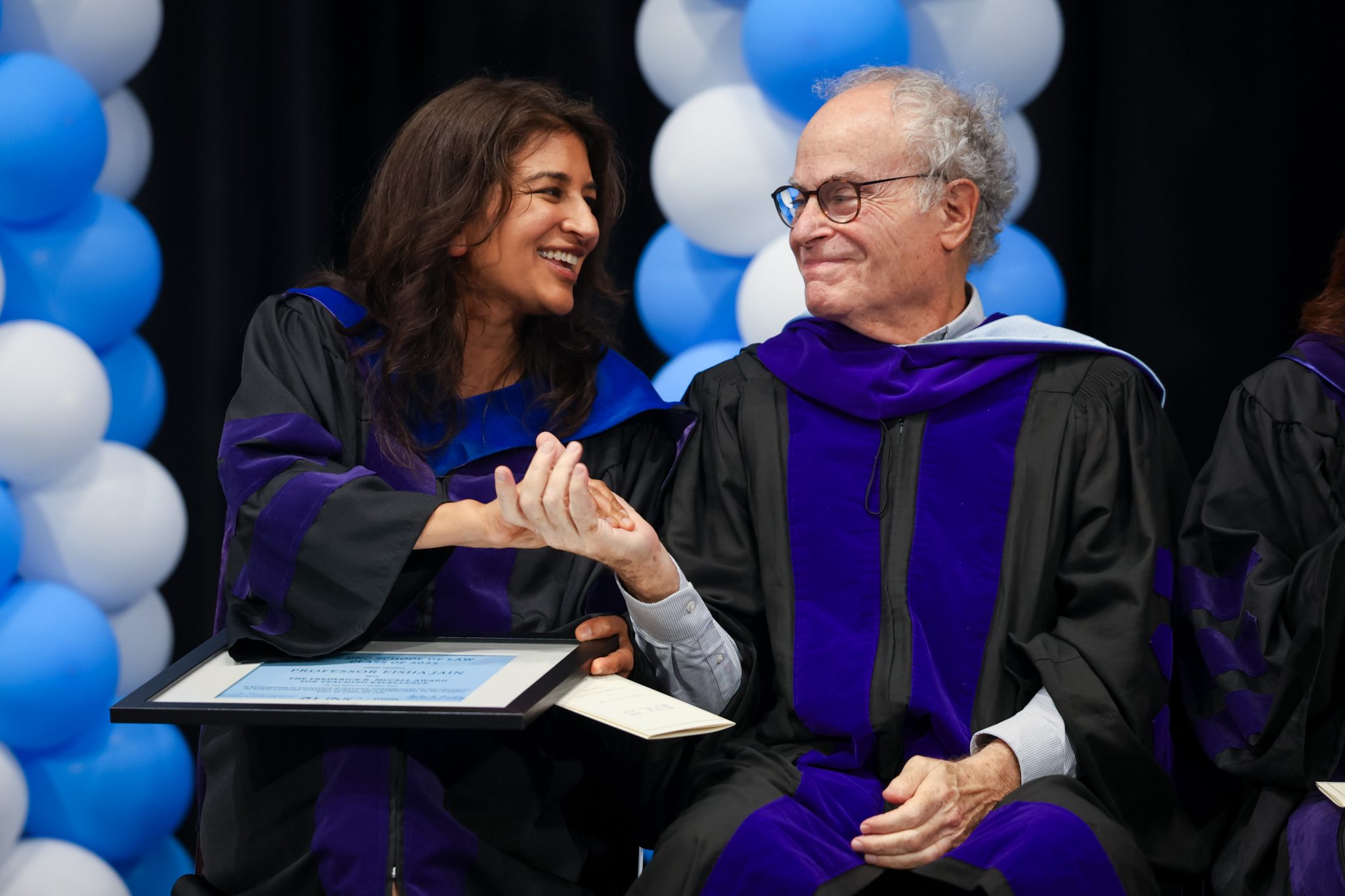
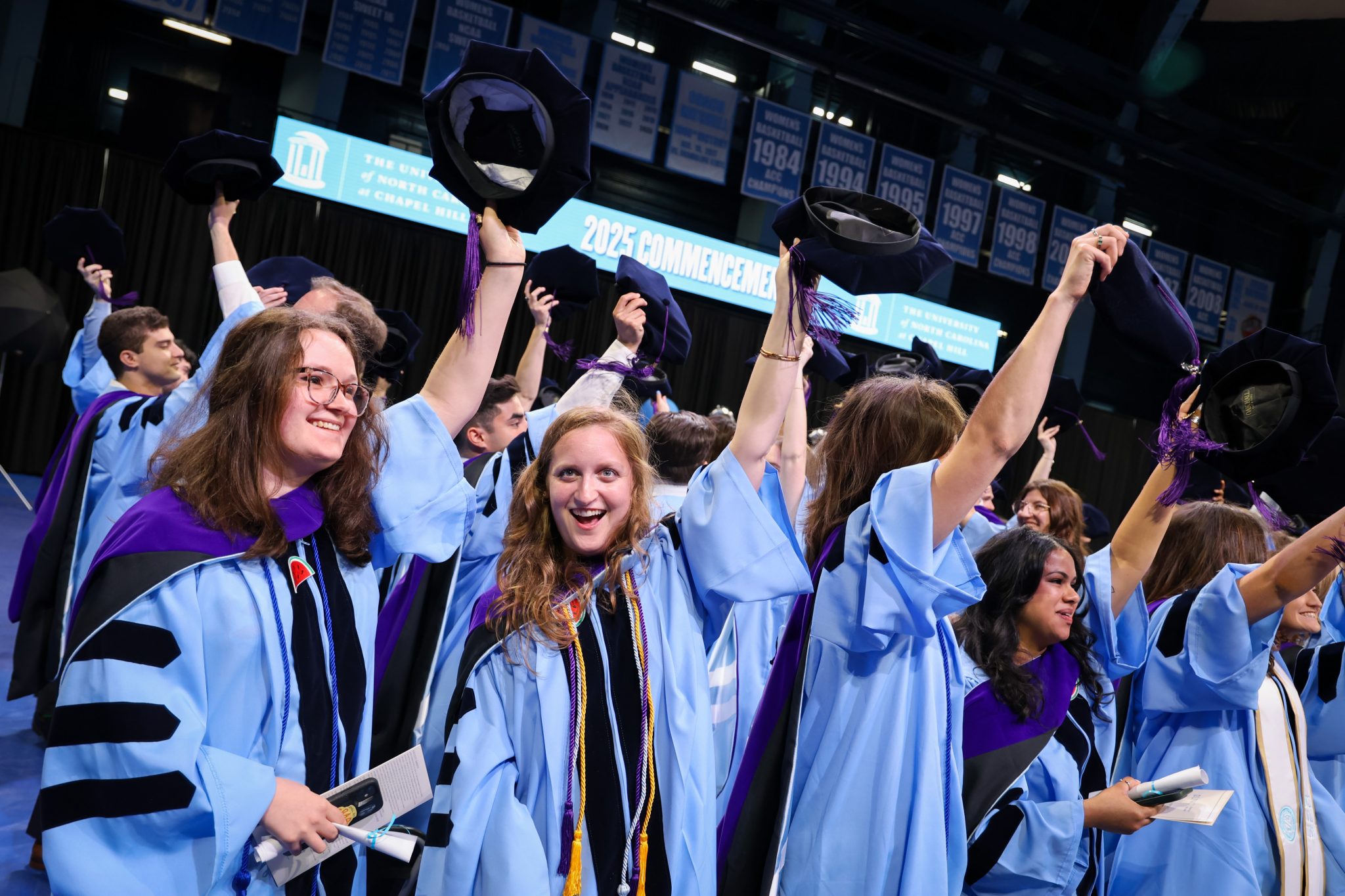
View more:
2025 3L Celebration | 2025 3L Reception | 2025 Commencement | 2025 Commencement on Film

